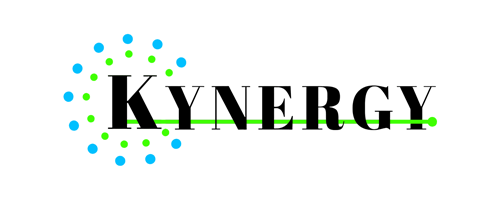
Characters
All characters in The West belong to the corporate world. You can be part of one of the three start-ups recently acquired by KYNERGY or you can be a liaison sent by the CEO of the parent company itself.
You will be able to play a communications manager, a member of the R&D team, a lawyer or any other position usually found in the corporate world. Each character will interact with other members of their company and with their counterparts in other start-ups.
Each of the characters will be introduced by a short brief that only reveals enough of it to get a general idea.
This public information represents just a fraction of a character's life and there is much more to discover, for example, a character could be hiding a terrible secret or suffering from psychological instability. It is difficult for these traits to be expressed in a clear form because at the core of the character's characterization is precisely their secret dilemma. Some characters will also tend to be in the spotlight while others will be focused on a more intimate play. Once you select a character, you will be granted access to the full description, which no other player will be able to read.
Archetype Keywords
In each character's "Advice" field you may find, in addition to any costume requests, keywords that will guide you in choosing a character.
Troubled
This character is haunted by something. It can be alcohol, drugs, crime, emotive instability, a dangerous or painful past, and so on.
Examples
Kate in “Lost”, Dexter Morgan in “Dexter”, McNulty in “The Wire”, John Nash in “A beautiful mind”.
Over-the-top
An histrionic, proactive, and shameless character who usually ends up under the spotlight.
Examples
Sergeant Hartman in “Full Metal Jacket”, Dr Cox in “Scrubs”, Jack Sparrow in “Pirates of the Caribbean”.
Ill-fated
Problems flock to this character like bees to honey. He or she experiences a lot of unexpected events, crises, and problems. It almost looks like the whole universe is plotting against them...
Examples
Luke Skywalker in “Star Wars”, Jesse Pinkman in “Breaking Bad”, Marty McFly in “Back to the Future”.
Introspective
This character prefers to stay away from the limelight. He or she has a discreet, understated, or shy style, and his or her personal relations are exclusive and focused on exploring personal problems.
Examples
Simon in “Misfits”, Richard Harrow in “Boardwalk Empire”, Ruth in “Fried Green Tomatoes”, Ryan Gosling in “Drive”.
Obsessed
Characters who are strongly determined in the pursuit of a goal or an idea; willing to do anything, ambitious, idealistic, but also desperate, blackmailed, controlled by the sense of duty, revenge, etc.
Examples
Walter White in “Breaking Bad”, The Bride in “Kill Bill”, Fox Mulder in “X-Files”, John Hammond in “Jurassic Park”.
Ethical and Philosophical Stances
The world we live in is a plural, contradictory, diverse system in which each person responds to small and large crises in their own way. The themes introduced in The West are also experienced through the lens of ideologies, attitudes, and beliefs held by the character itself, often despite the peers' opinions. They are presented as dichotomies.
The meaning of this duality is, often, the way we think, the values we believe in, and the principles we consider a foundation of our society, bring us closer to other individuals and separate us from others. Sometimes, they also put us at odds with ourselves.
What characterizes an individual? Their work, their inner nature, their beliefs? Or is it a contradictory tangle of many things capable of influencing their fundamental choices?

This is the kind of character we describe to the participants of The West, and these are the political, ideological, and social dichotomies we want to address:
Long-term VS Short-term
Long-term
“Not for us, but for those to come.”
Those who adopt this perspective consider the future more important than the present in many ways. From the simple things (such as the interest of the company or one's family) to the crucial topics (such as safeguarding the general interest of humanity). Those who believe in the long-term view know that the most important achievements take time. Business should not be considered a sprint but a marathon. Sacrificing a grandiose future to get a few crumbs in the present is not just stupid, it is immoral.
Above all else, for a "radical longtermist," the interest of Humanity has the utmost importance. And when such interest is at stake things like poverty, hunger or natural disasters do not even deserve to be considered. Nothing can be said to be wrong if it is done to ensure the unlocking of the maximum human potential. Starting from nature down to the very lives of individuals, everything is but a tool to be used to achieve this end. What is the maximum human potential? Hard to say but in order to unlock it one must move forward, always forward: each goal is but a step in a spiral that reaches for the sky. And on the path to heaven, any sacrifice is allowed.
Short-term
“Burn fast, die young”
For those who adopt this perspective an egg today is worth far more than any chicken tomorrow. Why worry about one's liver if Friday has just begun and the night seems like it may never end? Why think about how much we will earn tomorrow, if here and now there is a chance to be rich? Why waste time with what will happen a hundred years from now, if the fat of the land is at hand and can be easily taken?
We are alive, we exist here and now, and that's our only certainty. Beyond it, nothing but the black, unfathomable abyss of the future. Better shy away from it and focus on what we can touch with our own hands. Some would say that this vision is born out of sheer terror, or out of the awareness that the future is not just unfathomable, it is just screwed. But what if it isn't?
Corporativism VS Individualism
Corporativism
Those with this attitude believe that the benefit and values of the company should always come first, even if it means putting individual obligations and personal needs in second place.
This attitude goes far beyond the idea that contributing to the company's growth, in the end, serves the interests of individuals. It is seen more as a collective effort of people united by values, skills, and ways of thinking.
Individualism
It is the belief that individual interests must be protected at all costs and each one should do everything they can to remove any hindrance that prevents the achievement of the goal. There are no moral or ethical obligations towards co-workers or employers, excluding, of course, those agreed upon by contract or enforced by law.
The company the individualist works for is seen as just a tool for expressing one's potential, advancing one's career, or pursuing a specific goal and nothing more.
Profit VS Progress
Profit
Those who seek profit see the direct reward of their efforts as the driving force behind their actions. One's actions are planned and seen as an investment made in order to get something in return, which may come in the immediate term or may have a longer time horizon. Those benefits may be personal or shared with the people who have contributed to its achievement by sharing risks, labor, and burdens.
This reward does not have to be economic in nature, it can involve securing a promotion, obtaining greater decision-making power, freedom of action, or a reputational boost. Personal energy is a limited resource, and it must be used wisely in order to obtain the maximum possible advantage.
Progress
Those whose goal is progress act to achieve scientific and technological advancements in order to improve society, bring prosperity, and improve the living conditions of people. Those who have progress as the driving force behind their actions try to develop new technologies, discover new phenomena and materials and streamline processes and structures, including social ones.
Obtaining direct individual benefit from the improvements achieved is less important than bringing benefits to society and to the entire planet. In the end, this will benefit one's own conditions as well.
Caution VS Recklessness
Caution
Those with this attitude are careful and risk-averse. When they plan or make decisions they try to prevent possible future problems, instead of aiming for more ambitious purposes. In business they will have a bureaucratic attitude, requiring constant checks and redundancies, and will accept changes to the status quo only to move (slowly and gradually) toward a calmer situation. Being cautious does not mean not expressing one's views and pushing for one's view to prevail, but rather advocating cautious positions.
Recklessness
Every decision is a gamble, in which all that matters is the possible reward in case of success. The risk involved in case of failure or possible side effects is part of the game, and should not be an excuse for delays or inaction.
Reckless individuals will always push for bold research and investments with possible billion-dollar returns, no matter how sudden, disruptive, and risky.
“Ask forgiveness, not permission” is their motto.
Tradition VS Nonconformity
Tradition
Traditionalism refers to the general belief that, in order to navigate the uncertainties of an unpredictable and complex world, it is appropriate to treasure the best practices established by past experience. The traditionalist has the maturity to understand that conformism is an act of generosity.
While fully respecting one's private life, in the public sphere it is always necessary to maintain certain standards. Failing to meet these social norms leads to not being taken seriously.
Nonconformity
One who by personal inclination or mere social calculation, thinks and acts outside the box.
The nonconformist does not accept ideas, principles, customs, and behaviors merely by virtue of their popularity or supposed necessity. Driven by high confidence in his own values and ideas, the nonconformist questions dominant theories without preconceived notions and with a healthy dose of skepticism. In the end, exploring many perspectives is essential to navigating a complex reality.

Groups
The four character groups are described in more detail on the Setting page.
Kynergy
For more than three decades, Kynergy has been one of the largest suppliers of energy and fuels, and improved people's lives by enabling them to access the benefits of modern society.

Exodrill
A young, dynamic, rampant company specializing in developing new technologies for geological exploration and mineral prospecting, and in designing and producing machinery and equipment for deep excavation and drilling.
For our researchers no oceanic floor is too deep, no terrain too harsh, and there are no such things as unreachable mineral deposits. If a goal can be achieved, we at Exodrill will find a way to get the job done.
Fertitec(H)
Growth, sustainability, security. Our vision is centered around a modern approach to agriculture, and our research is aimed at nourishing crops and protecting them in a sustainable way. Here at Fertitec(H) we design, produce, and market next-generation high-quality organic fertilizers. Because we don't want to achieve a better future, we want to grow it, one sprout at a time.
BIOWONDER
More than progress, prodigy! BIOWONDER is a newly founded start-up created by young biologists and engineers driven by a bold idea: to actively decrease the level of CO₂ in the environment and use revolutionary technologies to make large-scale decarbonization possible.
We have both the ambition and know-how to turn our vision into reality.
Home Play Style Setting Characters Practicals Sign Up Credits